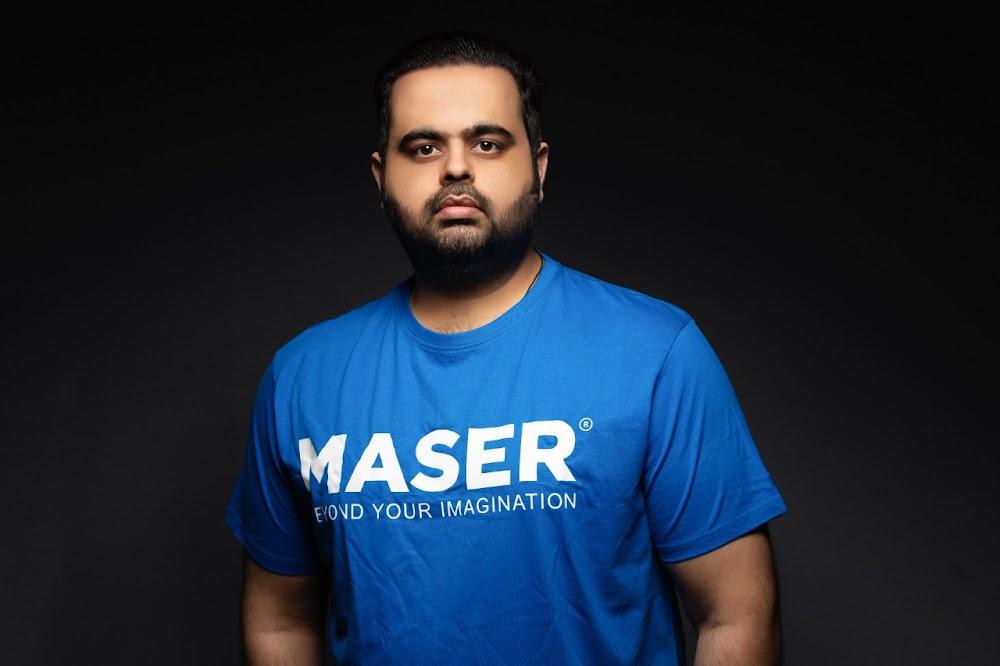Africa-Press – Eritrea. Prateek Suri, the chief executive of Dubai-based electronics company Maser is not new in Africa’s business landscape. Early this year, his company injected Sh10 billion into West Africa’s electronics market.
At the peak of the pandemic, he pumped billions of shillings into the East Africa market and set up an electronics warehouse in Nairobi.
His business centres on smart TVs, smart speakers, smartwatches, VR headsets, and air conditioners.
But who is Prateek Suri, what inspires him and why does all this focus on Africa? The Star spoke to him.
Tell us about your background and how you came into the business.
I am a 32-year-old investor in the smart electronics market. I founded Maser eight years ago, and I have since been working hard to gain substantial market share from the likes of Samsung, Apple, Oppo and LG in Africa.
However, the idea of venturing into this business came 15 years ago while I was still in school. Actually, I was born and brought up in Delhi, India. I received a BE in mechanical engineering from BITS Pilani in 2010.
I started my career in the trading sector, supplying goods across the MENA region. That is when I got invaluable experience and researched and understood customer preferences.
I also identified a number of business gaps that I sought to bridge. So, in 2014, I started my own business in Delhi where I gathered capital.
I manufactured hundreds of thousands of TV sets, selling to the local market first. I would soon gain customer trust and credibility to venture into the international market, ending up in the Jebel Ali Free Zone in Dubai where I currently distribute from.
What have been your success secrets in business?
Any business person will tell you that there is no secret in business. I can give the example of former US President Donald Trump who made it in business but went bankrupt and started building from scratch to become the billionaire he is now. So business has its ups and downs but discipline will set you apart.
Making business decisions based on accurate research data is one key element in growing your business even when the tides are against you like during the Covid-19 period. Another thing is falling in love with your business idea first, so much in love that no matter what tries to shake your business you stand to protect it.
You register it in every jurisdiction you expand to, you give it most of your time, and you look into the welfare of your employees and monitor what competitors are doing so you can do better.
Also, scanning what is happening around the world is crucial so your business remains afloat despite global geopolitics, recessions and currency fluctuations.
So, there is no secret, you have to work hard, focus every moment and stick to your dream.
Why Africa?
Africa is the next big thing. Here is a continent whose population is growing at the highest rate. In fact, World Bank data shows that the continent’s population will double by 2050. And do not forget that the average age in Africa is 19 years.
This is the population every global company is looking at. It is a Generation Z that is tech-savvy and wants the best in life despite what their parents went through.
But some challenges make this generation take too long to achieve its dreams. The issues have been matching quality with affordability. Samsung and LG are offering high-quality electronics but at an exorbitant price for this population.
Chinese brands on the other hand are offering affordable electronics but of very poor quality. Here is where Maser comes in. We offer top-quality smart TVs, smart speakers, smart air conditioners, smartwatches and other wearables at a very affordable price.
That is my contribution to this generation in achieving their dreams faster.
When we talk of technological equity, we leave out Africa because most countries lack the financial muscle to afford Apple products that western and eastern nations enjoy.
It is time technology companies made their devices, no matter how good quality they have, affordable and we are leading on that front.
I know there are huge challenges penetrating new markets but what keeps you going?
You’re right. Penetrating new markets is no walk in the park. You can spend a whole year studying a market and doing some tests just to make sure when you ship in bulk you will reap profits.
A huge stumbling block has been the different tax policies in different countries. However, I have a team that coordinates all that and advises accordingly.
For, instance, when we did our market research in Kenya, we got optimistic findings that if we shipped our products, customers would be ready to use them no matter how new our brand was to the market.
It is a market that demands quality but also looks at what is available in their pockets. So, I keep researching, I keep learning and unlearning for every country where we have a presence.
Where do you see the African electronic market in 10 years’ time?
If you look at consumerism patterns in the continent, the African electronics market is promising. Anyone aged 20 now will be 30 years and the growth rate is high, which means there will be a higher demand for modern electronics.
Most of the devices we are currently manufacturing are meant for the next wave of the internet revolution – web3. That means with the increasing internet connectivity in Africa and the reducing cost of mobile internet, the consumption of these devices will be highest in the world in the next 10 years.
Yes, there will be new competitors but again we will have gained brand loyalty. We keep innovating every day to ensure the African consumer gets the best device.
Your advice for upcoming entrepreneurs?
Always make your customers happy. How you treat your clients is critical in their decision to come back to purchase your product or service.
If you treat them right, they will bring you even more customers without spending a cent.
Once you have launched into the public and you start getting clients, ensure that your systems and processes are in places, such as payment terms and processes, contracts and communications.
Always hire the right people and pay them well so you don’t lose them to your competitors. It’s important to recognise the size of your market, how your customer preferences are expected to change and what your competitors are doing.
Building a great and unique product is okay but there is no guarantee it will turn into a successful business.
Many businesses find themselves focusing on a market that’s simply too small to build a big business in. You are allowed to make mistakes in your first year in business.
The biggest mistake you can make is to be afraid of failure because of various challenges. Failure is key to your success, it helps you learn to break the glass ceiling.
Close to 90 percent of life is about how you react after failure. Every step of failure is a great lesson toward success. But the bottom line is, love your business.
For More News And Analysis About Eritrea Follow Africa-Press







